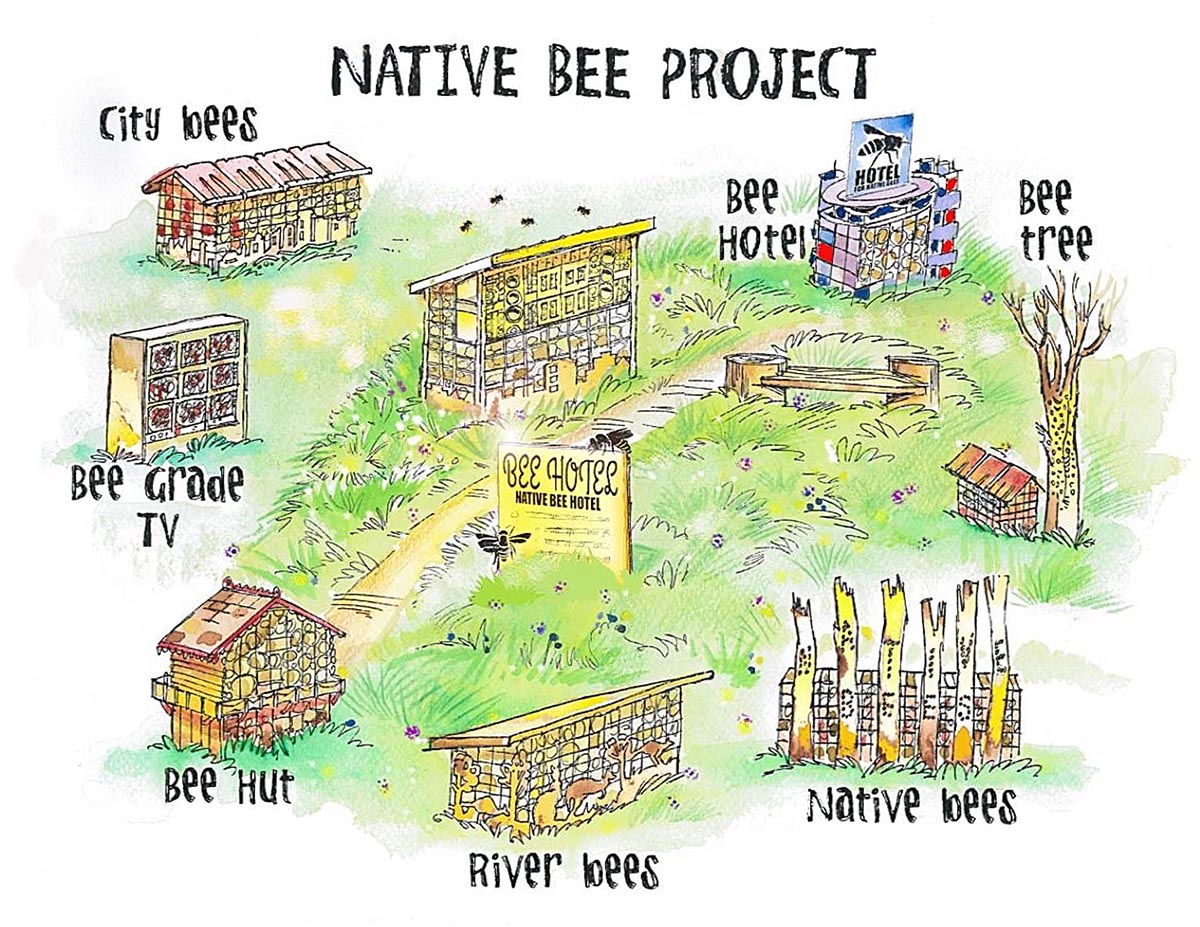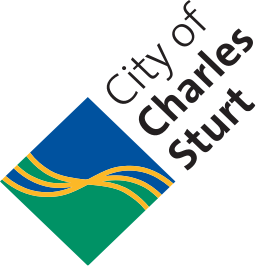Bees play a vital part in the pollinating of our veggie patches as well as our native plants and gardens. Around 80% of the food we eat relies on pollination for growing and farming.
When the weather warms up, there can be more bees than usual buzzing about. If bees swarm into the wrong areas, we can relocate them to keep our community areas safe.
We're creating Native Bee 'n' Bug Hotels along our iconic River Torrens. This project is in conjunction with our partner councils, the cities of Adelaide, Port Adelaide Enfield, Tea Tree Gully, Campbelltown, West Torrens, Norwood Payneham St Peters, and Walkerville. Our funding partner is the Adelaide and Mount Lofty Ranges Natural Resources Management Board.
Native bees are mysterious creatures that live very different lifestyles to honey bees. They help pollinate our native plants and veggie gardens. They can even make our tomatoes taste better!
In South Australia there are more than 200 different kinds of native bees. There are 1650 in the whole country, and 20,000 species worldwide and we're finding new species all the time.
These fascinating and elusive creatures can be as small as 2mm. They can live in all sorts of places like hollow stems and dirt.
To learn more about our brilliant bees, watch our video. It features Australia's foremost native bee expert Dr Katja Hogendoorn and SA's very own gardening megastar Sophie Thomson.
You can even learn to build your own native bee and bug hotel!
You can even make your own at home by following our fact sheets and plant bee food!
Materials for community bee hotels
Read more about the different types of native bees:

During the warmer weather, bees may form a colony outside of the hive. This is called swarming. It means that the bees are trying to get cool or establish a colony.
For some people, the size of a swarm can be concerning. Generally during this state, the bee colony is not aggressive as they are trying to protect the queen.
On Private Property
Council does not provide a service to relocate bees from private property. Since it is a specialised task, we do not recommend attempting to remove a bee colony yourself.
If you need help, there are many organisations specialising in bee relocation. They are pleased to help you, and find the bees a more suitable place to make their home.
The Beekeepers Society of SA has a list of contacts who remove and relocate bees for a fee.
For more information, visit Biosecurity SA.
On Council Property
Council will relocate bees from council land if they are causing a risk to public health and safety.
To report a bee swarm, call our Customer Contact Team on 8408 1111. You can report swarms if they are causing a nuisance, public health or safety risk.
Remember, bees are important for our environment and food production. Where possible, swarm relocation (not destruction) is the best choice for all of us.
Bite Size Bees
To celebrate World Bee Day on Wednesday 20 June, Mark from the City of Charles Sturt and Sandra from the Adelaide Bee Sanctuary delivered a series of live online educational sessions to discover more about the history of bees.
Observation bee hive
We’ve welcomed over 20,000 bees into our innovative observation bee hive in the Civic Library.
In a first for a South Australian council, the hive features an external chute for the bees to come and go as they wish and allows an uninterrupted view of the bees’ busy activities.
